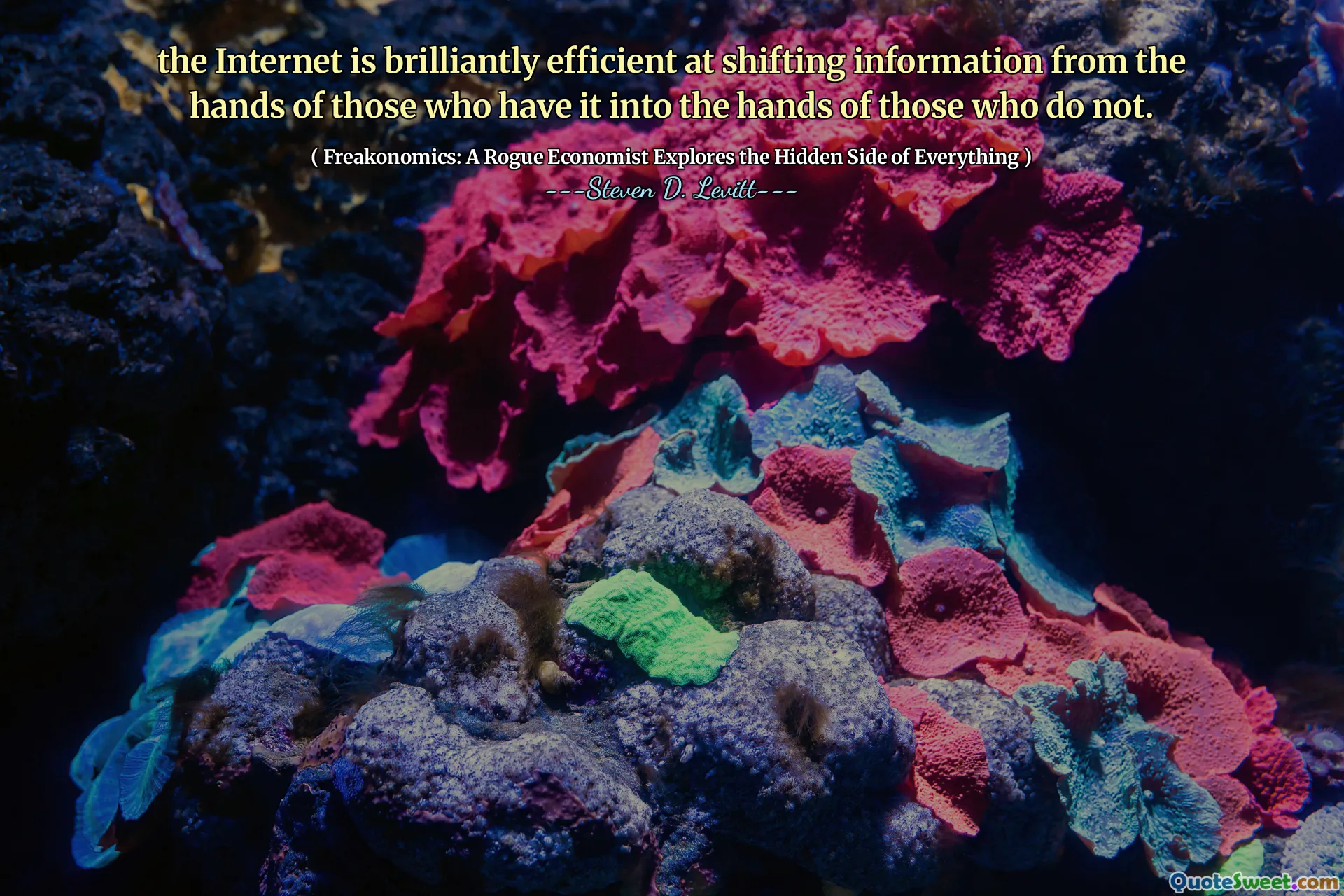
the Internet is brilliantly efficient at shifting information from the hands of those who have it into the hands of those who do not.
The quote highlights a fundamental dynamic of the digital age—information is power, and the Internet acts as an unprecedented democratizer, capable of redistributing knowledge swiftly and broadly. Historically, access to information was often restricted by geographical, socio-economic, and institutional barriers. Today, the Internet dissolves many of these barriers, enabling individuals from diverse backgrounds to learn, innovate, and participate in the global dialogue. This shift has profound implications for education, economic opportunity, and social equity. For instance, a person in a remote village can access the same educational content as someone in a major metropolis, levelling the playing field in ways previously unimaginable. However, this democratization also introduces new challenges, such as misinformation, digital divide, and privacy concerns. With vast quantities of information now readily available, distinguishing credible sources from unreliable ones becomes crucial—highlighting the importance of digital literacy. Moreover, while those with initial access to information can accelerate their advantages, those still left behind due to lack of connectivity face a widening gap. The quote encapsulates both the empowering potential of the Internet to distribute knowledge and the responsibility that comes with it—to ensure that such distribution benefits everyone, not just the already privileged. In essence, the Internet, when harnessed properly, functions as a tool for collective knowledge-building, fostering an informed citizenry, and perhaps ultimately, more equitable societies.






